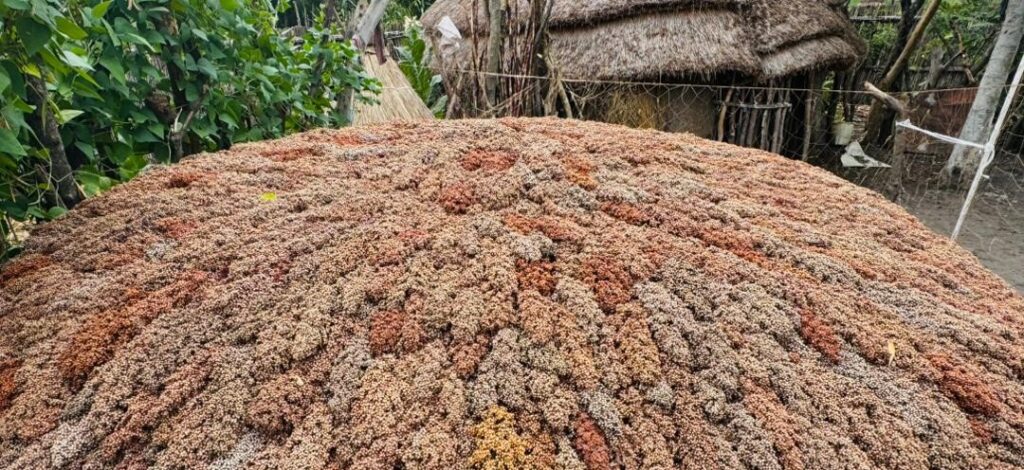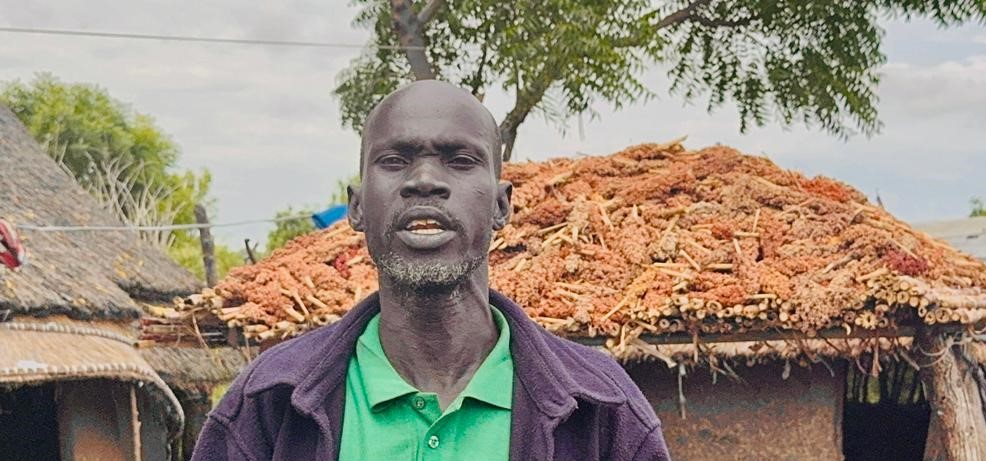Farmers in Akobo, a volatile region of Jonglei State, are planning to expand their crop lands next year, buoyed by a recent successful harvest, but say they need solar-powered irrigation and a lasting peace to ensure their efforts succeed.
The farmers in Akobo County are appealing to the government and aid groups for irrigation pumps to boost productivity and ensure food security, framing agriculture as a vital alternative to reliance on food aid.
Their ambitions are set against a backdrop of persistent insecurity. While a 2018 peace deal halted South Sudan’s civil war, ceasefire violations and inter-communal violence continue to disrupt farming. In Akobo, farmers near the border with the Greater Pibor Administrative Area have often been forced to abandon their land due to inter-communal violence.
Despite the threats, farmers in areas like Dengjock, Gakdong and Bilkey payams — administrative districts — successfully cultivated sorghum this year for the first time in 12 years using seeds imported from neighboring Nyirol County.
Encouraged by the harvest, they are now looking toward 2026.
“I am appealing to our government officials, NGOs, and fellow South Sudanese in the diaspora to support us with water pumps,” said Gatbel Khan, a farmer in Akobo County. “With a proper irrigation system, we could plant even during the dry season.”

The need for reliable water access was highlighted this year when areas including Nyandit Payam and parts of Bilkey Payam suffered poor yields due to insufficient rainfall.
Beyond material support, farmers said peace is the non-negotiable foundation for any agricultural progress. They urged conflicting parties to recommit to the permanent ceasefire and fully implement the 2018 peace agreement.
“My main problem this year is not lack of food — it’s how to prevent my crops from being destroyed,” said farmer Gatkuoth Top. “We want peace at all levels so we can focus on agriculture.”
Top and others are calling on South Sudanese to see farming as a path to self-reliance in a country with vast, untapped agricultural potential.
“WFP will not feed us forever. We must take deliberate steps to diversify our livelihoods,” Top said, referring to the U.N.’s World Food Program.
Gatbel Khan echoed the sentiment, pointing to the country’s natural resources.
“South Sudan has fertile soil and sufficient rainfall,” Khan said. “What else are we waiting for?”




